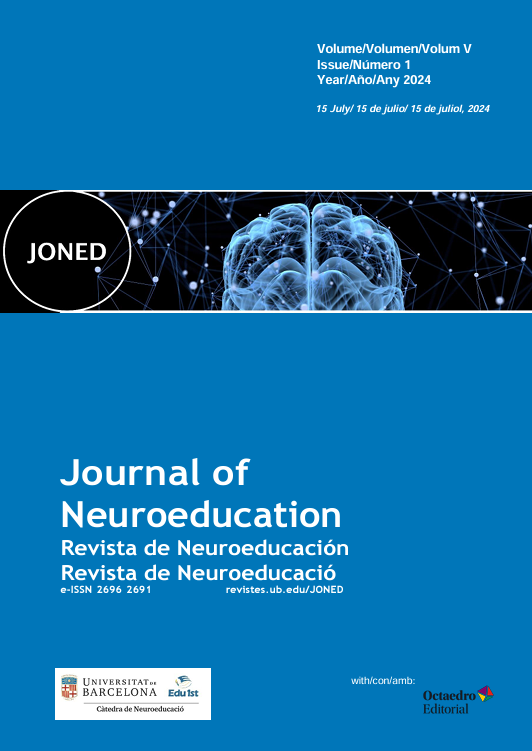El impacto de la Neuroeducación en el abordaje de las Necesidades Educativas Especiales
Abstract
Talking about inclusion and Special Educational Needs (hereinafter SEN) is talking about a bidirectional relationship that has been consolidated over time. A relationship that many health professionals and, above all, Differential Education, have taken care to cultivate day by day in their daily performance. This concern has become an ethical imperative. And rightly so, given that it is of capital importance to make a serious commitment in this regard.
There are many definitions of the concept of SEN. In this writing we will consider it as a term that is used to distinguish any student who presents problems or difficulties in progressing in their learning and meeting curricular objectives.
Here Neuroeducation takes on special relevance. Precisely, it emerged as a way of understanding the educational process based on the knowledge available about the brain and nervous system that basic science laboratories made available to the community. The concept is conceived as a discipline that seeks to combine the contributions of neuroscience, psychology, cognitive sciences and education, focusing on understanding how the brain learns and focusing on using this available information to develop new methods that can support in the orientation of new proposals for new curricular adjustments and new educational policies. It also supports educational work at this level on several fundamental principles: brain plasticity, emotional education and a biopsychosocial model in working with people with SEN. This considering that they usually present various problems in various skills such as sensory integration, the functioning of attentional systems and language, which obviously requires a specialized approach supported by different techniques.
The NEE have been permanently surrounded by neuromyths, understood as a series of erroneous or unfounded beliefs that relate findings in neuroscience. These beliefs have expanded rapidly within the community and are transformed into solid knowledge, when in reality they are not, considering the lack of knowledge. prevailing regarding how the brain really works. To this we add that, many times, scientific discoveries are simplified or exaggerated when they are reported through different media.
Finally, it is necessary to indicate that people with SEN must be considered educationally as integral human beings, in their cognitive and also emotional dimensions given that these two spheres cannot and should not be considered as independent elements. Neuroeducation reinforces this position and guides us on how we can strengthen the educational process in an inclusive way and without discrimination.
Downloads
Downloads
Published
Issue
Section
License
Copyright (c) 2024 Norton Contreras Paredes

This work is licensed under a Creative Commons Attribution-NonCommercial 4.0 International License.
The authors who publish in this journal agree to the following terms:
a. Authors retain copyright and grant the journal the right of first publication
b. Texts will be published under a Creative Commons Attribution Non Commercial License that allows others to share the work, provided they include an acknowledgement of the work’s authorship, its initial publication in this journal and the terms of the license, and not for commercial use.



